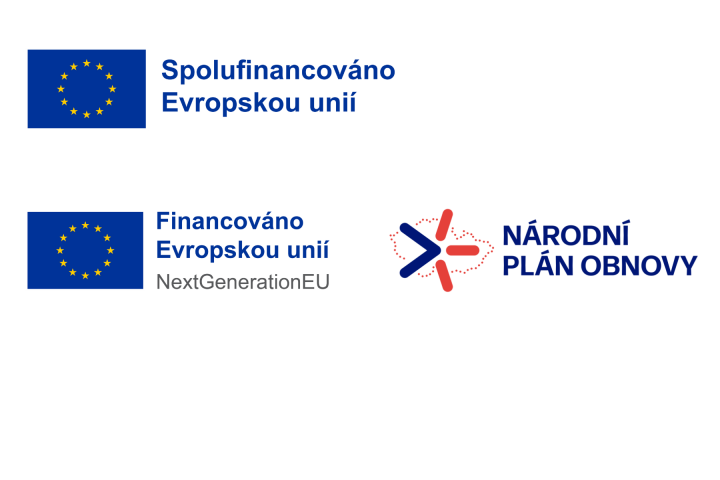
The AI-MATTERS network connects testing and experimentation facilities (TEFs) across eight EU countries, including the Czech Republic. Here, companies can benefit from state-of-the-art infrastructure and expertise, primarily through partnerships with three Czech universities. They can also tap into the broader AI-MATTERS ecosystem of 25 partners across Europe. The Czech team is led by the Czech Institute of Informatics, Robotics, and Cybernetics in Prague CIIRC CTU, working alongside CEITEC Brno University of Technology (CEITEC BUT) and Technical University of Ostrava (VŠB-TUO).
In the Czech Republic, a 200 million CZK budget has been allocated for the support and provision of services to SMEs, with half of the funding provided by the Ministry of Industry and Trade through the National Recovery Plan and the remaining half from the European Commission’s Digital Europe Programme. The entire AI-MATTERS network operates with a total budget of €60 million (1.5 billion CZK) until 2027.
"I am pleased that thanks to these facilities, Czech companies can benefit from the cutting-edge infrastructure and the associated expertise. The AI-MATTERS project not only fosters local innovation but also opens doors for Czech companies to collaborate with European partners and access new markets. This is a significant opportunity for those looking to elevate their technological solutions and enhance their competitiveness in a dynamic industrial environment. This initiative is one of the key projects advancing the goals of the newly approved National AI Strategy of the Czech Republic 2030," says Lukáš Vlček, Minister of Industry and Trade.
"For the Czech Republic, digital transformation and the development of Industry 4.0 is a priority. In testing and experimental facilities, companies can trial new, innovative AI-based solutions. This service will thus contribute to advancing the digitalization of businesses, which is crucial for the future success and growth of the Czech economy," says Petr Očko, Director General of the Section of Digitization and Innovation, Ministry of Industry and Trade.
The expert teams in Prague, Brno, and Ostrava offer a wide range of services focused on key areas such as data collection and analysis, smart factories, process optimization, IoT systems, human-machine-robot collaboration, and industrial 5G communication. With experienced specialists and modern facilities, in particular the RICAIP Testbed Prague, the RICAIP Testbed Brno, and the Smart Factory Lab Ostrava, companies have access to state-of-the-art AI and advanced robotics technologies.
“AI-MATTERS presents a unique opportunity for Czech companies looking to leverage the potential of artificial intelligence. Through this initiative, AI technology providers, developers, integrators, and many end users from the manufacturing sector can bring their innovative solutions to market more quickly and efficiently. Moreover, this program is faster and significantly less bureaucratic than other grant initiatives,” says Ondřej Beránek, lead coordinator of the AI-MATTERS Czech node at CIIRC CTU. Up to 100 projects are expected to be implemented in the Czech Republic by 2027 to help streamline manufacturing processes, introduce predictive maintenance, or deploy robots in production.
"Companies often struggle with how to modernize their existing machinery, especially when they lack the resources to acquire new technologies. In such cases, we help to retrofit existing machines with modern sensors, integrating them into the entire production system to enhance manufacturing processes across the shop floor," says Pavel Burget, Director of the RICAIP Testbed Prague at CIIRC CTU. "We focus on areas that pose the greatest challenges in operations, such as downtime, outages, and maintenance planning. With the help of artificial intelligence, we can optimize these processes and thereby increase the competitiveness of the enterprise."
“Our goal is to demonstrate how to effectively utilize the collaboration between machines and people in various manufacturing scenarios,” adds Pavel Václavek, coordinator of the Industrial Cybernetics research program at CEITEC VUT Brno, representing the RICAIP Testbed Brno. “We will design and test ways to deploy a robot in positions where human workers cannot be utilized, perhaps due to a lack of qualified personnel. We can structure experiments that allow companies to test scenarios and discover how to reduce costs and automate the manufacturing process using autonomous robotics.” The team from Brno can also assist companies in creating datasets for tasks such as visual inspection and provide machine time to train AI models during the conducted experiments.
“For companies that are already collecting data from production, we assist in processing this data to optimally configure their manufacturing systems for efficient production planning and predictive maintenance,” states Petr Šimoník, Vice-Dean for Industry Cooperation at the Faculty of Electrical Engineering and Computer Science at VŠB-TUO. “By utilizing virtualization and integrating digital twins of production processes, along with deploying artificial intelligence, we can identify opportunities for optimizing manufacturing processes, including resource and material management.”
The call for proposals for testbed services has just been launched and is now available on the AI-MATTERS and CIIRC CTU websites. It contains all the necessary information on the types of projects that companies can undertake in collaboration with universities, including the procedures for obtaining financial support for the services provided, with discounts of up to 100%. Typically, this involves testing advanced technologies and AI-based solutions that have been developed in laboratories or under limited conditions, and now need to be transitioned into real-world environments.
AI-MATTERS aims to enhance the resilience and flexibility of the European manufacturing sector through AI, robotics, and intelligent autonomous systems. It offers a combination of physical and virtual facilities where technology providers can primarily receive technical support for testing their latest AI-powered software and hardware solutions (including AI-driven robotics) in real-world environments. This support encompasses full integration, testing, and experimentation of the latest AI technologies to address challenges or improve solutions within specific application domains, including validation and demonstration.
